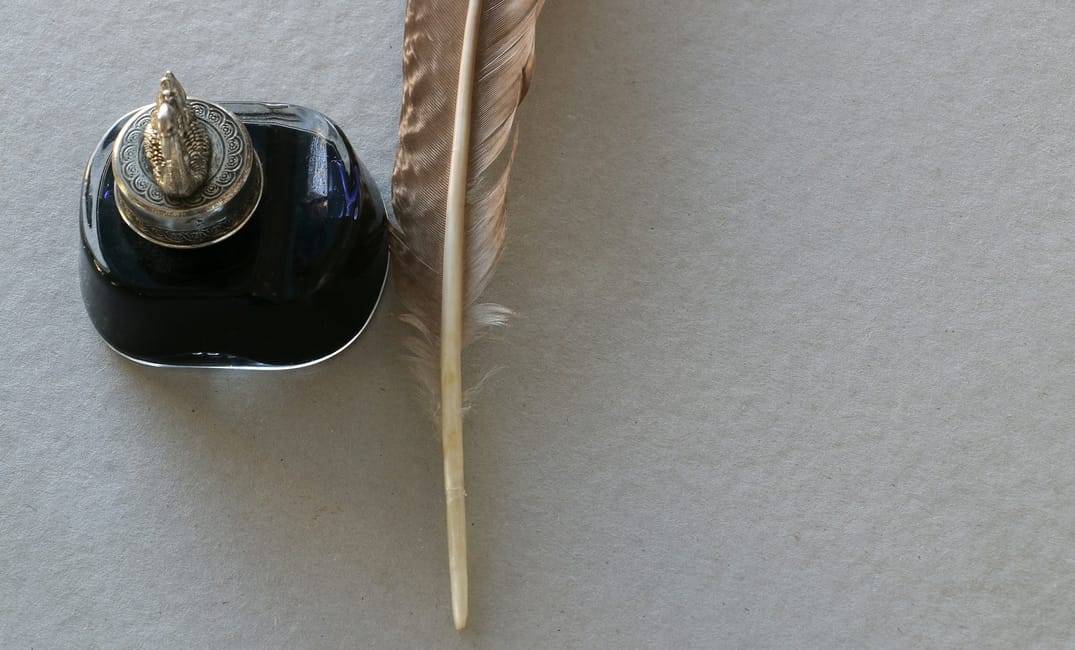✏️ Rachael Thacker
During my time studying english literature through to A-Levels I never studied anything written by a black author. The only thing that we studied which contained the theme of race was Othello, and spoiler alert: things didn’t end well for him.
This made me interested to research more about historical black writers and how they tried to have their work noticed. This led me to Phillis Wheatley, the first Afircan-American to have a poetry book published.
Younger Years – Gifted Child
Captured at the age of 7 from her home in Gambia in 1761, she was transported on a boat named Phillis to America where she was sold to the Wheatley family, hence her name Phillis Wheatley.
Slave children could’ve been killed for expressing an interest in learning to read and write. So it was very unusual that Phillis received academic teaching from the Wheatley’s children. Phillis learnt Latin, French, biology and astrology, but her talents clearly flourished with literature.
Despite English being her second language, she was soon reading complex classic novels and started writing her own poems at 11. In 1767, her first poem was printed in the Newport Mercury. However it had to be submitted by Mrs Wheatley on her behalf.
Despite the Wheatleys encouraging Phillis’ writing, I think that it’s important to reiterate that she was still viewed as their possession. Phillis would be the entertainment of dinner parties as she was made to recite poems. Guests were bewildered that a slave girl could be so intelligent.
Having To Prove Her Work
The belief at the time was that Blacks were intellectually inferior to whites, that they didn’t possess reason or imagination. But a black person’s work being recognised and published was a huge challenge to this viewpoint.
Many were skeptical of Phillis, rejecting the idea that her work was her own. A panel of 18 men were assembled to interrogate and question Phillis to decide if her work was authentic. All of the men were extremely wealthy and privileged being slave owners and some even slave dealers.
Although there are no transcripts of the conversation, I think we can imagine how the exchange went. The examining and interrogating, patronising her to see if she really understood the references in her work; questioning how a girl ‘like her’ was able to write such literature.
Nonetheless, the panel was satisfied that Phillis had indeed written her own poems. And so, Poems on Various Subjects, Religious and Moral, was published, making it the first book of poetry to be released in English by an individual of African descent.
‘Freedom’
Phillis was freed in 1773 and some argue that there was a visible shift in her work as spoke more about the evils of slavery and the hyprocrisy of a land where leaders preached about freedom.
On the other hand, her freedom also meant financial independence and it wasn’t long before Phillis was living in poverty. And as runs true to this day, who you know can be a huge factor in your success. Phillis was no longer the Wheatley’s trophy that they could show off to their influential friends. This made obtaining connections more difficult.
As the revolutionary war broke out in 1775, either people who had previously endorsed Phillis had passed away, or were solely concerned with war. It proved much harder for Phillis to get a second book published.
Tragedy struck her life and following her marriage to John Peters, they lost two children in infancy and their third died with her when she was 30.
Critics From Both Sides
Most of criticisms surrounding Phillis’ work was that it lacked emotional authenticity and that she was merely imitating others. However, unusually this criticism came from opposite demographics for very different reasons.
For instance, Thomas Jefferson was publicly dismissive of Phillis’ poetry. He described how it’s like praising a parrot who can say some words. Okay maybe impressive for someone ‘like her’, but not comparable to the white male poets.
Jefferson also diminished her ability and critiqued her writing on religion, arguing that she was merely regurgitating religious ideas in a repetitive and mindless manner.
On the other hand, Phillis has also been criticised by black communities in their discussion on black literature.
Amiri Baraka was the organiser of the Black Arts Movement in the 1960s. For him, Phillis was incapable of expressing the hardship that black people faced because she was ‘white minded’. Her privilege of education, despite being a slave, arguably made her detached from her roots.
Notably some of her early pieces are self-deprecating. This is probably due to her socialisation and being told that she was a second rate citizen. Unfortunately the reality is that she was too black to reach her full potential in the 18th century, and has since been outcast by some contemporary critiques for being too white.
Her Legacy
Even with the above criticisms, I think it is still really important to share the significance of her writing, not only for black people, but also women, as she was the third woman to be published in America.
She ignited literary movements such as the American Poetic Tradition, the Black Literary Tradition, and the Women’s Literary Tradition. And her academic talents are still hugely impressive today.
Thanks for reading our article! We know young people’s opinions matter and really appreciate everyone who reads us.
Give us a follow on Instagram, Twitter and Facebook to stay up to date with what young people think.

